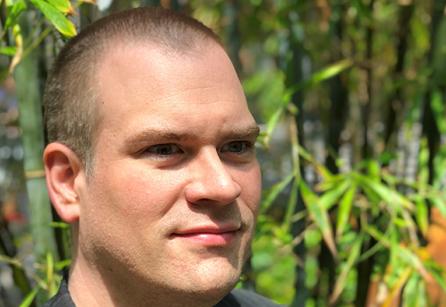News
Public Lecture by Jesse LeFebvre
December 13, 2022

The Divinity School is pleased to announce a public lecture by Jesse Lefebvre: "The Antifragile Hasedera Kannon: Disaster, Revitalization, and Karma in Medieval Japan."
This lecture will be on Wednesday January 11, at 4:30pm in our Common Room.
Buddhism is often described as a religion that embraces the impermanence and inevitable cessation of all things and yet, paradoxically, this acceptance of impermanence has imbued certain historical manifestations of Buddhism with flourishing sustainability—especially in the face of disaster. One dramatic example of such flourishing comes from the medieval Japanese context where over the course of eight centuries of repeated disaster one of Japan’s most influential temples, Hasedera, fostered the development of a culture that was not merely resistant to disaster’s effects but thrived in the wake of disaster. The site’s “antifragility”—that is, its ability to thrive and grow when exposed to volatility, randomness, disorder, and stressors—transformed the very meaning of disaster itself. Ultimately, destruction became the language by which the Hasedera Kannon was believed to express her will and, as such, disaster was also believed to be the skillful means by which this bodhisattva compassionately intervened in the karmic destinies of individuals, society, Buddhist institutions, and politics in order to generate soteriological opportunities that also served as a catalyst for temple restoration efforts at Hasedera and throughout Japan.
Jesse LeFebvre is a PhD Candidate in the Department of East Asian Languages and Civilizations at Harvard University. He received a BA in History from the University of Minnesota, a BA in Buddhist Studies from Shuchiin University in Kyoto, Japan, and an MA in Japanese Religion from the University of Hawaii. He specializes in the medieval and modern religious culture and history of Japan with a special interest in Buddhism, religious cultures of disaster, and contemporary Japanese Christianity within the context of “nonreligiousness.”

